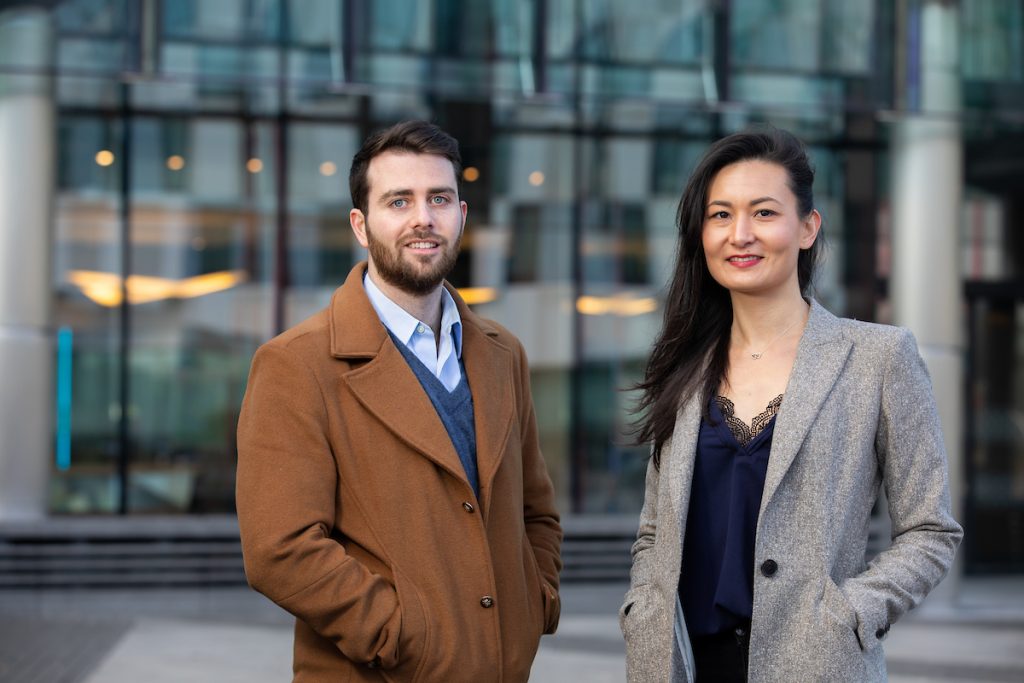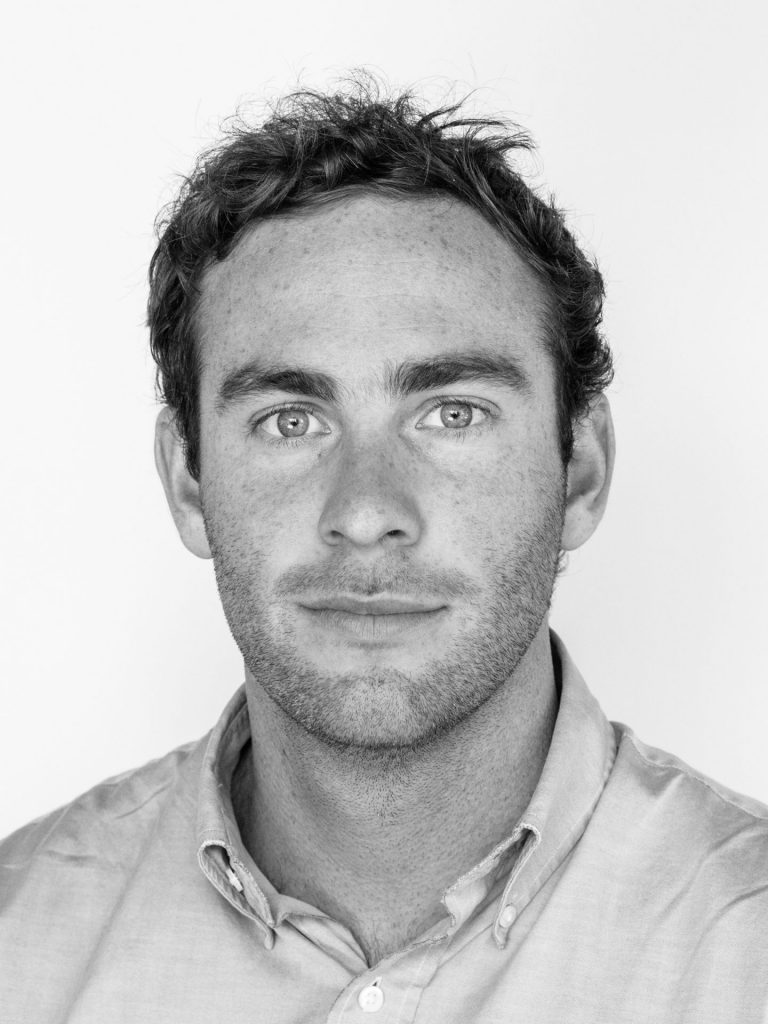Tackling the issues around collecting coins in a time of social distancing, graduates of Trinity Business School’s MBA programme are helping charities collect donations through their start-up, as Matt Conaghan explains
Dublin has become the innovation hub of Europe – earning the reputation of ‘Silicon Docks’ after an influx of prominent tech giants opened their European headquarters in Dublin. At the epicenter of this innovation engine is Trinity College, where our story begins.
Change Donations started as a college project for MBA students Lizzy Hayashida and William Conaghan in the fall of 2017.
Both founders moved to Dublin after careers in Silicon Valley and Wall Street to pursue higher education and understand the international startup arena. Their combined experience, Trinity Business School, and Ireland’s burgeoning start-up landscape collectively helped shape the idea that is now Change Donations.
For those who are unfamiliar with Change Donations, we help charities fundraise in the digital age and connect with the younger generation of donors. In addition to traditional giving methods, Change Donations offers the ability to round up and donate. ‘Round-ups’ allow donors to link their credit or debit cards, round their card purchases up to the next euro, and donate their digital spare change to the causes they care about most.
Imagine you go for your morning coffee. It’s €2.85. Change Donations rounds that up to €3 and donates €0.15 to your favorite charity. This easy-to-use donation method allows you to make giving part of your everyday routine.
Donors can set weekly or monthly round-up limits, choose to round up only on select purchases, and turn round-ups on or off at any time. Donors can split their round-ups between multiple charities, giving them complete control over their giving plan. Change Donations puts donors in the driver’s seat, and allows them to give in parallel with their propensity to consume. By aligning their giving plan with their daily spend, donors can ensure donations grow or shrink with their financial circumstance.
Lizzy Hayashida, Co-founder and CEO, spent eight years working for startups in Silicon Valley. From Y Combinator startups, to an Ebay acquisition, she has seen multiple levels and stages of the startup lifecycle.
She explains: ‘I always knew I wanted to start my own business and was fortunate enough to see first-hand the positive effects fintech can have on people’s lives. SF gave me the tools and experience to navigate the startup terrain, but I wanted to test my assumptions in a fresh market. Dublin has been heralded as Europe’s tech hub, and Trinity is Europe’s leading institution for entrepreneurship, so despite the 5,000 mile move across the globe, it was an easy decision.’
Through case study modules, field work, and focus groups, the founders were able to take the skills they learned in the classroom and apply them to their business.

William Conaghan explains, ‘Trinity was instrumental in helping us deconstruct our assumptions, and refine our business model. We were able to take our business plan and run it through each MBA module in completely independent silos, giving us incredibly thorough feedback across multiple perspectives.’
The ethos at Change Donations is to build a community of everyday philanthropists – helping individuals inspire positive change through daily spending. The core mission is simple: ‘Make Giving Easy.’
We want to put the donor in the driver seat and allow them to customize their giving plan to align with their lifestyle. We all have uniquely different interests, but we all care about something. We want to help people support the causes they care about simply, conveniently, and on their own terms.
‘We have always been passionate about giving back to the communities and organizations that have helped shape who we are today,’ Lizzy continues.
‘Giving back is very much a part of each of our identities, and we wanted to build a company that reflected our values. We knew that the non-profit sector was suffering, and that the explosion of technological innovation had somehow managed to doge the charitable sector. We wanted to use our skills and experiences to help solve the solutions of the non-profit sector.’
William Conaghan, Co-founder and CFO, worked in New York as a financial analyst at Nasdaq prior to moving to Dublin to pursue an MBA at Trinity. The transition from Wall Street to the nonprofit sector isn’t a well-trodden path, but Conahan’s passion for the charity sector is deep rooted.
He explains: ‘In middle school and high-school, my brothers and I started ‘Boys For Bikes’ – an initiative where we collected unused bikes and sent them to third world South American countries. We used a national organisation, Bikes for the World, to facilitate the physical shipment of the bikes to South America, but we handled the collection and helped raise awareness. This really sparked my passion for the non-profit sector, and ultimately led me to co-found Change Donations.’
William adds: ‘I was educated by the Jesuits, so I spent my high school and collegiate careers with the motto of ‘Cura Personalis’ (care for the whole person) constantly reinforced into every aspect of life. For as long as I can remember, helping those in need has been drilled into everything I do.’
Through the blended lenses of technology, philanthropy, industry, and academia, William and Lizzy’s vision quickly led Change Donations beyond the confines of the classroom. Now headquarter in the center of Dublin, the team has grown to seven and the company is looking to expand into the US this fall.
Lizzy says: ‘Ireland has been an incredible place to start a business, but we need to expand internationally in order for this to scale.’
Change Donations closed its seed round of funding (€800K) in April 2020. The investment round was led by Irish VC firm Elkstone Capital Partners (€250K), which was matched by a US syndicate (€250K), and buttressed by Enterprise Ireland (€300K). The US syndicate is made up of private individuals and is anchored by DC based private equity firm, Paladin Labs. With the backing of the Irish government as well as VC firms in the US and Ireland, the team is looking to make a big splash this fall.
Covid-19 has impacted businesses all over the world and has been an incredibly challenging time for people to build and grow their businesses. ‘We understand the impact on the charity sector during an economic downturn, but we’re not strangers to adversity,’ says William. ‘We both uprooted and moved across the world to follow our passions, and we deeply believe in what we’re doing.’

Matt Conaghan is Head of Marketing at Change Donations and a Trinity Business School alumnus.
He worked as a copywriter in Chicago for Ogilvy & Mather where he managed global accounts for Modelo, Corona, Dove, and Glade. He holds a bachelor’s degree in Marketing from The University of Notre Dame and a Masters in Digital Marketing from Trinity Business School, Trinity College Dublin.



